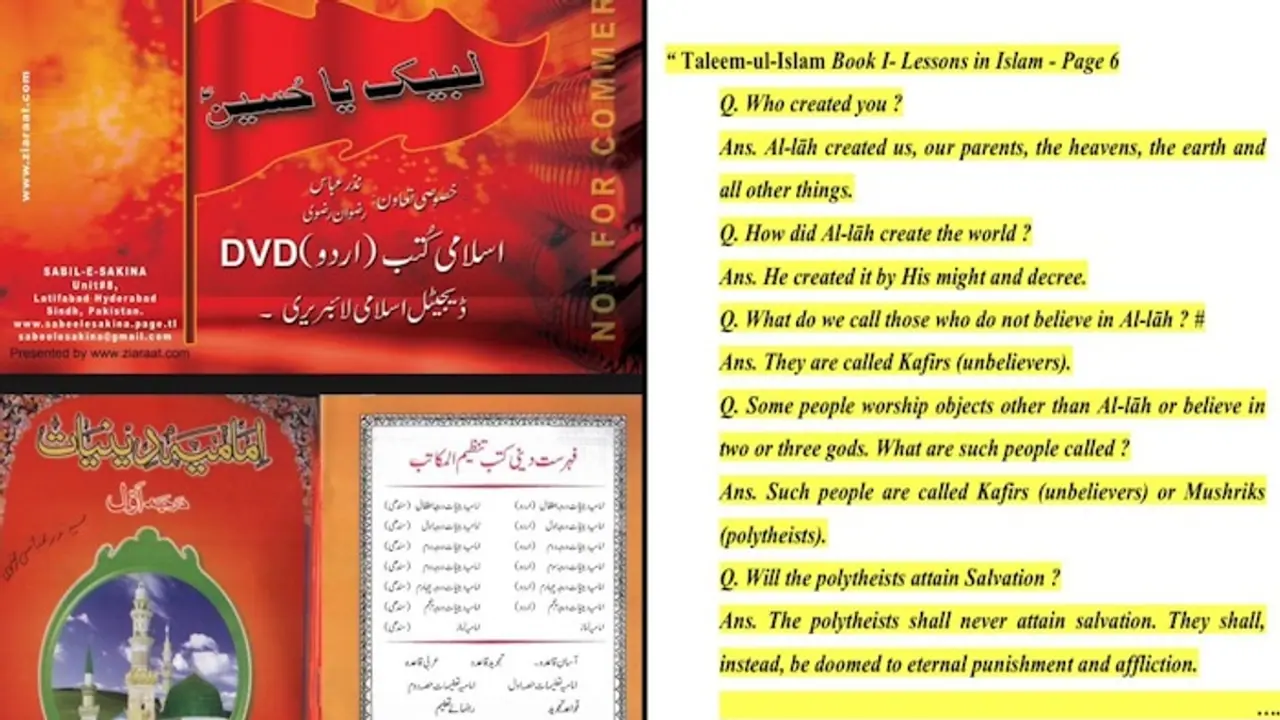Priyank Kanoongo, Chairman of the National Commission for Protection of Child Rights (NCPCR), has expressed grave concerns regarding the curriculum used in government-funded madrassas in Bihar.
Priyank Kanoongo, Chairman of the National Commission for Protection of Child Rights (NCPCR), has expressed grave concerns regarding the curriculum used in government-funded madrassas in Bihar. Kanoongo's remarks, made on the social media platform X, allege that the madrassas are using what he describes as a "radical curriculum" and "Pakistan-published books." He has also criticized the enrolment of Hindu children in these institutions and accused the United Nations Children's Fund (UNICEF) of being complicit in these practices.

In his post, Kanoongo questioned UNICEF's role in designing the madrassa curriculum, characterizing it as a form of "appeasement" by both the UN agency and the Bihar State Madrassa Education Board. He urged the UN to investigate these activities and recommended the dissolution of the Madrassa Board.
Kanoongo's concerns focus on textbooks like Talimul Islam, which he claims label non-Islamic people as "kafir" (infidels). He noted that while Hindu children are admitted to these madrassas, the Bihar government has not disclosed the proportion of Hindu to non-Hindu students. Kanoongo argues that such curriculum content and practices are in violation of the Right to Education (RTE) Act, the Indian Constitution, and the United Nations Convention on the Rights of the Child (UNCRC).
The NCPCR Chairman also criticized the involvement of UNICEF in preparing the madrassa curriculum, describing it as an inappropriate use of funds received for child protection purposes. Kanoongo stated that madrassas should not serve as basic educational institutions and advocated for the transfer of Hindu children from madrassas to regular schools.
"This is the height of appeasement by @UNICEF and the Madrassa Board. It is not UNICEF's job to create radical curriculum using money received as donations and grants from governments in the name of child protection. Misuse of funds in activities other than RTE is a direct violation of Constitution of India and #UNCRC should be investigated by @UNinIndia. @UN should also monitor it," he wrote on X.
"Many books included in the prescribed curriculum are published in Pakistan and research on their content is ongoing. Madrassa is not a place for basic education of children in any form, children should study in school and Hindu children should not be in Madrassas at all, Madrassa Board should be dissolved," the NCPCR chief further said.
UNICEF officials in Patna declined to comment on the allegations. However, according to a TOI report quoting sources within the state education department indicated that UNICEF had been involved in preparing the madrassa curriculum at the Bihar State Madrassa Education Board's request, in alignment with the Centre's New Education Policy.
Kanoongo's statements have sparked a debate over the role of madrassas in education and the involvement of international organizations in local curriculum development.
"This means that @UNICEFIndia is training Islamic fundamentalists in India to kill infidels and carry out Ghazwa-e-Hind. Will the @narendramodi government file a case against the officials of @UNinIndia under terrorist sections?" wrote one user on X in response to Kanoongo's post.
Another user remarked, "These Madrassas which are promoting fanaticism, hatred, violence and ignorance in the minds of innocent children need to be closed down immediately."
"Any reply from UNICEF yet? This is highly irresponsible and shocking," asked a third user.
Here's a look at some of the other reactions on X:
